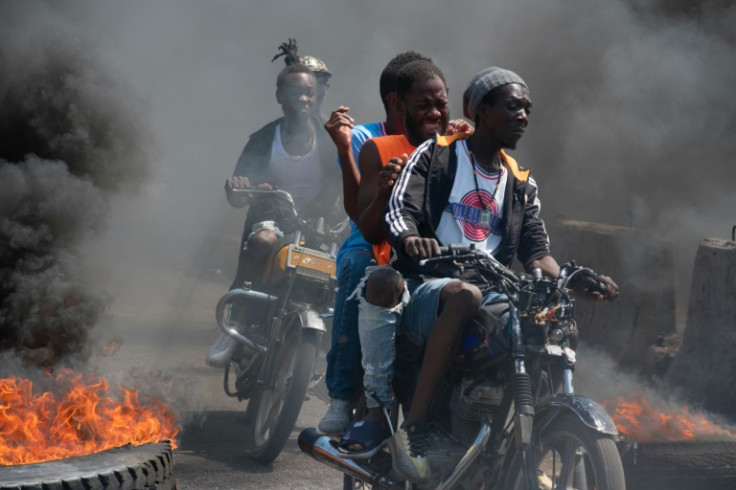Haitians Scramble To Form Governing Body Amid Gang Violence

Haitian stakeholders were working feverishly Wednesday to form a transitional governing body, after Prime Minister Ariel Henry agreed to resign in hopes of restoring order to the impoverished nation as it faces a deep crisis of gang violence.
An emergency meeting Monday that brought together US, UN and Caribbean representatives, among others, yielded a blueprint for Haitians to form a governing Transitional Presidential Council until elections can be held.
Haiti has not had a national election since 2016, and there is currently no parliament or president. President Jovenel Moise, who was assassinated in 2021, was not replaced.
Gangs that control most of the capital Port-au-Prince launched a campaign almost two weeks ago saying they intended to topple Henry, sending the country into a violent crisis with warnings of possible famine and even civil war.
Henry has been stranded in Puerto Rico after a visit to Kenya where he hoped to nail down the details of a now-frozen plan for it to lead a UN-approved police force to restore order in Haiti.
He announced late Monday that he had agreed to resign when the council is stood up.
The transitional body is to have seven voting members drawn from political parties, the private sector and the Montana Group, a civil society coalition that had proposed an interim government in 2021 after Moise's assassination.
There will also be two non-voting seats on the council -- one for civil society and another for the church.
The body is supposed to quickly name an interim prime minister.
The US State Department said Tuesday the council should be formed in 24 or 48 hours, but the talks are turning out to be arduous and most parties contacted by AFP said they were not yet near agreement.
Parties close to Moise have selected their delegate to the transitional body but politicians loyal to Henry are still in disagreement over who will represent them.
"We're talking about political parties, which have not been able to see eye to eye over the last few years," Ivan Briscoe, head of the International Crisis Group's Latin America and Caribbean program, told AFP.
Now that Henry is on his way out, "possibly they will look to the national interest and leave aside their party interests for a while until the elections," he said.
Meanwhile in Port-au-Prince, which saw a surge in gang violence in recent weeks, shops were open Wednesday and life was slowly returning to normal, an AFP reporter observed.
Buses were running and some government offices were open after being closed for two weeks. But schools stayed shut, as did the city's airport.
Several countries and the European Union have evacuated diplomatic personnel out of the country due to the violence.
The UN said Wednesday that it would begin "reducing the footprint of non-essential personnel," but that "colleagues who carry out life-saving activities will remain in Haiti to continue operations."
Several residents welcomed the resignation of Henry but wondered how the powerful gangs -- who control vast swathes of the country and 80 percent of the capital -- will behave as Haiti tries to get back on its feet.
A man named Emmanuel who do did not want to give his last name said Henry "was the biggest obstacle we had."
"He did not really have a plan for what to do with the country. We need a fast mechanism to replace him," said Emmanuel.
Another Haitian, named Jean Dieuchel, said "it is now up to the people to decide who should be prime minister and who should be president. These people should be Haitian patriots and they should have a sense of national sovereignty."
But in a sign of the tough road ahead, Kenya decided Tuesday to put on hold its plan to lead a UN-backed international police force in Haiti, saying it must wait until Haiti has a government.


© Copyright AFP {{Year}}. All rights reserved.





















